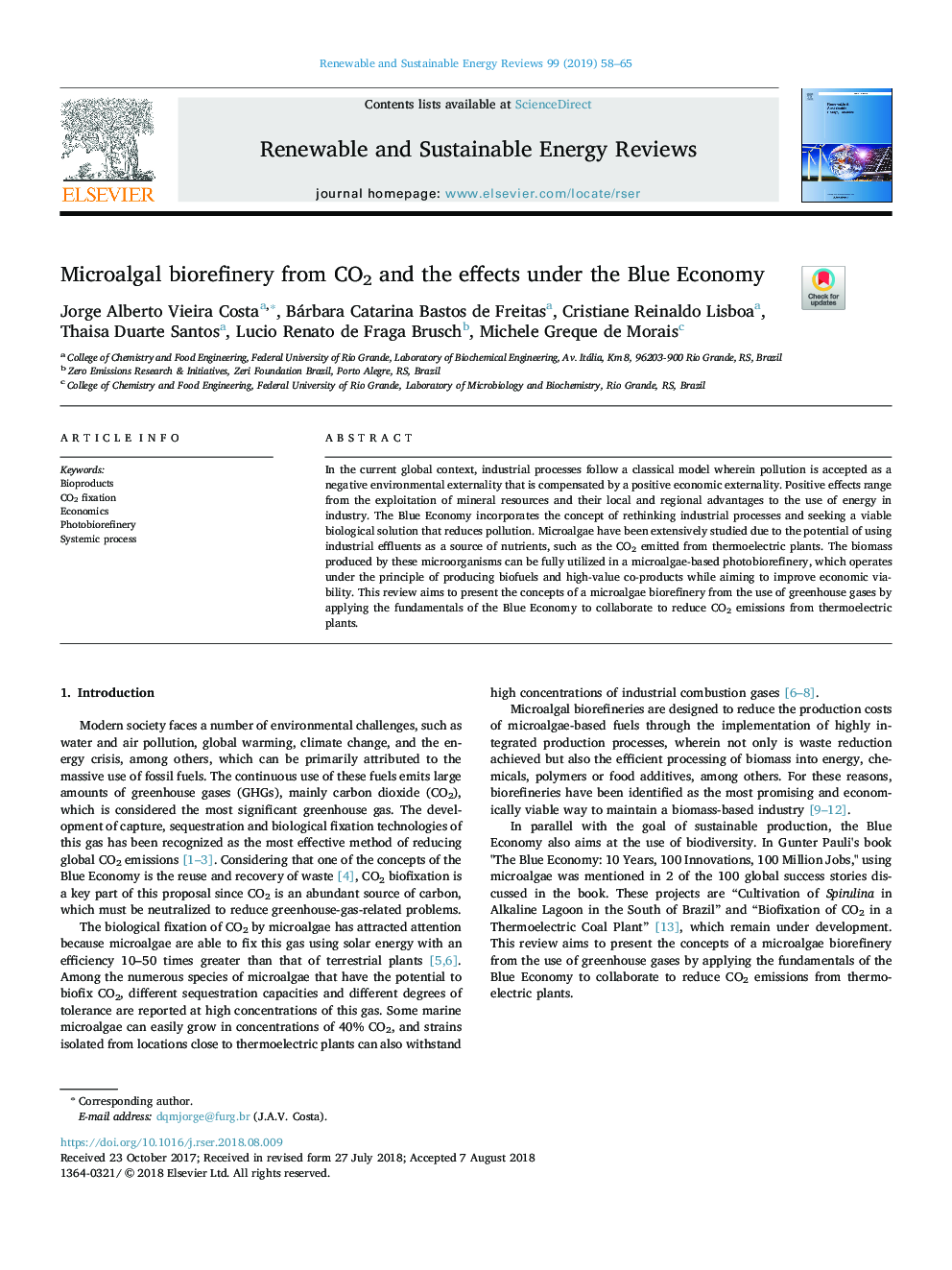| Article ID | Journal | Published Year | Pages | File Type |
|---|---|---|---|---|
| 11019707 | Renewable and Sustainable Energy Reviews | 2019 | 8 Pages |
Abstract
In the current global context, industrial processes follow a classical model wherein pollution is accepted as a negative environmental externality that is compensated by a positive economic externality. Positive effects range from the exploitation of mineral resources and their local and regional advantages to the use of energy in industry. The Blue Economy incorporates the concept of rethinking industrial processes and seeking a viable biological solution that reduces pollution. Microalgae have been extensively studied due to the potential of using industrial effluents as a source of nutrients, such as the CO2 emitted from thermoelectric plants. The biomass produced by these microorganisms can be fully utilized in a microalgae-based photobiorefinery, which operates under the principle of producing biofuels and high-value co-products while aiming to improve economic viability. This review aims to present the concepts of a microalgae biorefinery from the use of greenhouse gases by applying the fundamentals of the Blue Economy to collaborate to reduce CO2 emissions from thermoelectric plants.
Keywords
Related Topics
Physical Sciences and Engineering
Energy
Renewable Energy, Sustainability and the Environment
Authors
Jorge Alberto Vieira Costa, Bárbara Catarina Bastos de Freitas, Cristiane Reinaldo Lisboa, Thaisa Duarte Santos, Lucio Renato de Fraga Brusch, Michele Greque de Morais,
